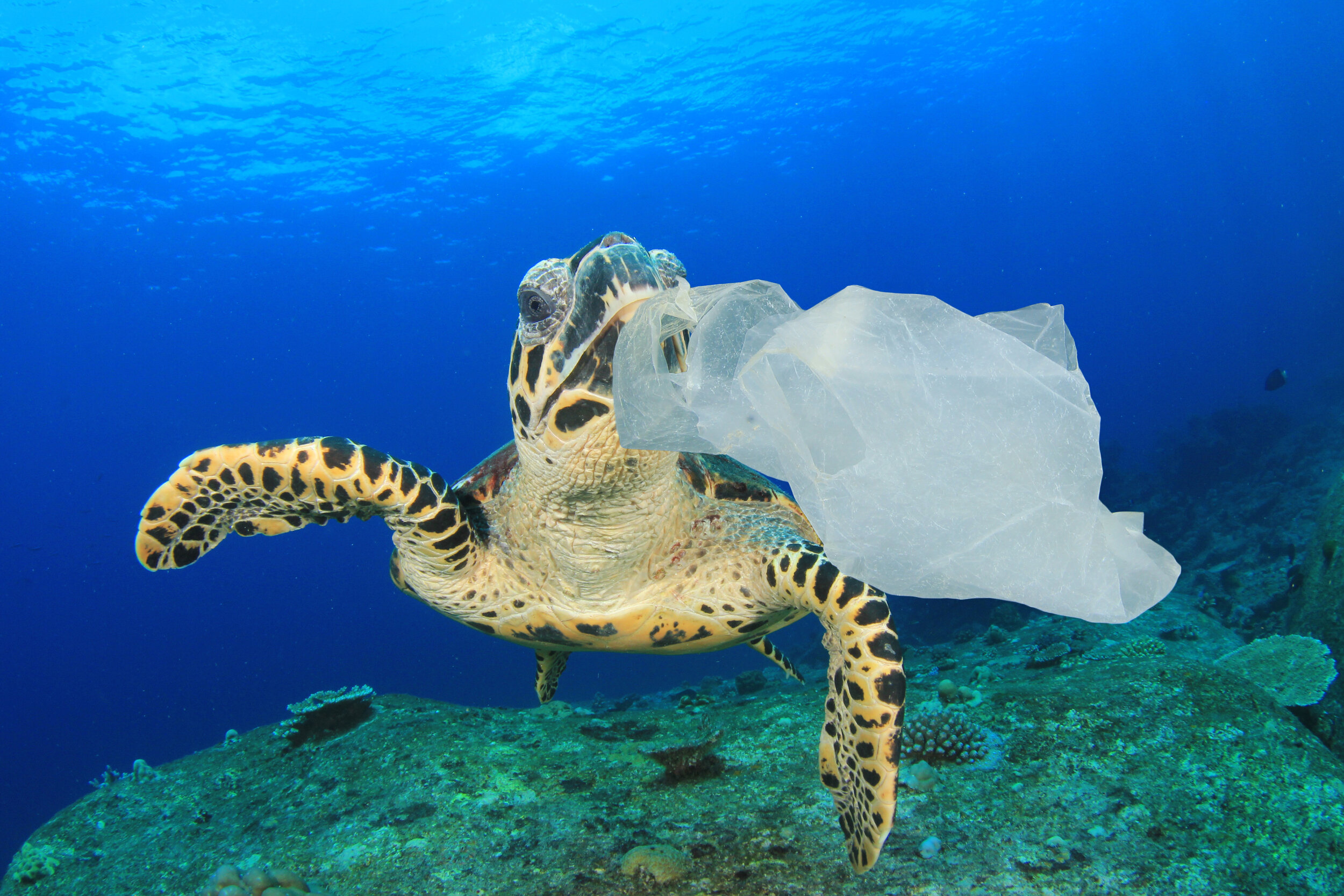Plastic Bags
Human beings use approximately 5 trillion plastic bags a year. That’s 160,000 per second.
In four visits to the supermarket, an average family will use 60 plastic bags.
Plastic is made of chemicals and fossil fuels. The fossil carbon required to manufacture 14 plastic bags would fuel a passenger car for 1 mile.
Plastic bags are largely unrecycled. Multiple investigations using electronic tracking devices have demonstrated that even when plastic bags are collected, they may be diverted to landfills and incinerators.
Plastic bags do not break down in the environment. They break up instead, into microplastics and nanoplastic particles that penetrate every corner of the environment and contaminate water, food, and soil. They’ve even been found in the human body.
Plastic bags are free to consumers but are costly to municipalities, agriculture, and the environment.
Plastic bags placed in recycling bins end up clogging recycling machinery, forcing expensive shutdowns. One recycler estimates that it costs an additional $9,500 a month in labor to untangle plastic bags from equipment.
Plastic bags clog sewers, snag in trees, and blow into water bodies, requiring expensive cleanup. According to one study, communities on the West Coast are spending more than $520 million each year to combat trash in the environment.
When plastic bags blow away or are dumped on grazing land, they can be eaten by animals like cattle, causing intestinal impaction, sickness, and death. They can also snag on crops, mixing litter into the harvest.
Plastic bag bans are effective. They reduce pollution, protect agriculture and the environment, lower municipal cleanup costs, and are easily embraced by consumers. Studies demonstrate that plastic bag bans successfully reduce plastic bag pollution by at least one-third.
Shoppers adapt quickly to plastic bag bans, making the shift to reusables. In San Mateo County, California, the proportion of local customers with reusable bags increased 162% after passage of a ban in 2013.
In nearby Mountain View, California, the proportion of customers forgoing single-use bags nearly tripled once a ban was imposed in 2012.
Voters support bans on plastic bags. In one 2023 poll, 85% percent of respondents across 32 countries supported bans on unnecessary single-use items that commonly become plastic pollution.
The number of American states, cities, and counties with successful bag bans is growing fast. As of January, 2024, 12 states and over 500 cities and towns had a plastic bag ordinance in effect.
Wondering what can you do?
You can work on passing a local plastic bag ban! It is an effective way to reduce plastic pollution and help grow the movement against single-use plastics!
See our resources below for tools and tips for getting your state or local government to pass a plastic bag ban.
MODEL LEGISLATION
You can download our model “Beyond Plastics Bill” and use it as a starting point with your elected representatives. It is drafted to ban plastic bags, polystyrene, plastic straws (except upon request), splash guards, stirrers, and balloons. We recommend doing all of these items at once, if possible!
START A PETITION
If you’d prefer to limit your efforts to just polystyrene, you can use this sample petition language to start an online petition to raise awareness and put pressure on elected officials to act.
GET THE FACTS
Check out our handy Plastic Bags Fact Sheet – available to download as a PDF.
Find MORE INFORMATION
Like facts? (We do.) Want to arm yourself with more information? We recommend reading the two reports below to help you make your case:



